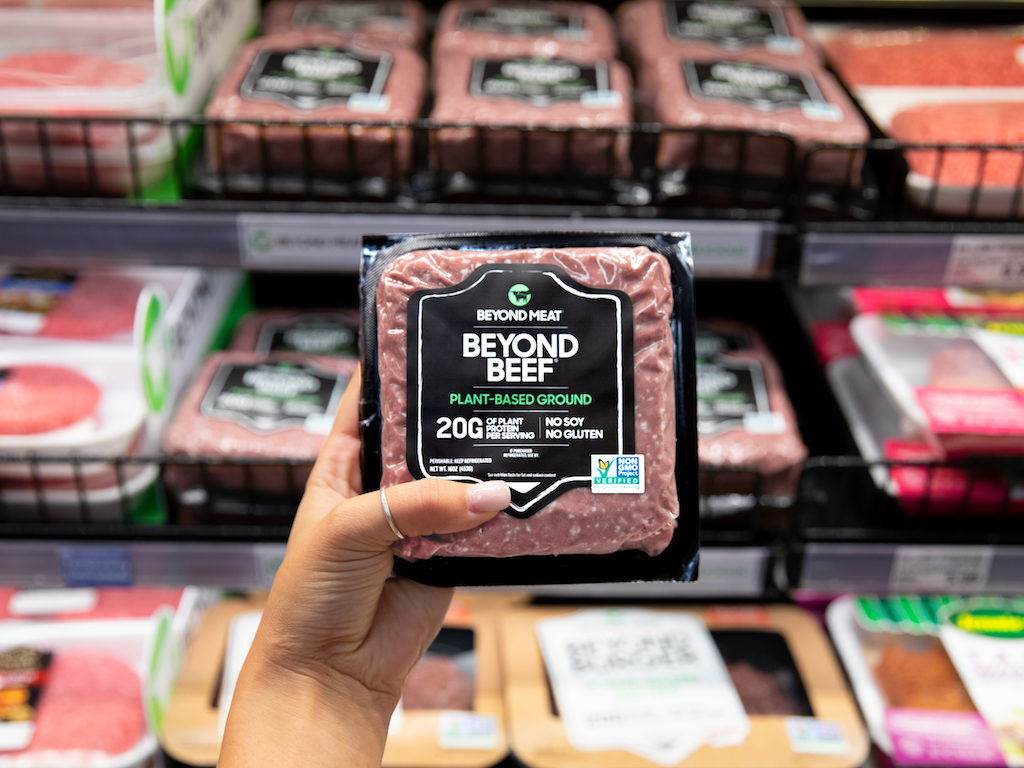3 Mins Read
The plant-based beef segment alone could grow to over US$16 billion by 2030, new research says, citing shifting consumer habits in younger generations and the flexitarian trend as the primary factors. It also highlights the rising awareness of livestock diseases as a major reason prompting mass consumers to turn to plant-based beef alternatives, with burger patties remaining the most popular product across all regions.
With double-digit growth rates averaging 22.7% annually over the next decade, the global plant-based beef market is forecasted to reach US$16.13 billion by 2030, says a new report by Dubai-based market research firm Future Market Insights (FMI). According to the analysts, the key drivers of growth will come from the emerging consumer base of flexitarians and conscious younger generations of shoppers, who are increasingly turning to non-GMO and plant-based products to meet their health, food safety and sustainability concerns.
Almost 9.6 million people in the U.S. have shifted to plant-based meals and are following veganism, [and] meatless substitutes are gaining traction in Europe too with preferences shifting by 451%.
Future Market Insights

“Rising incidents of diseases occurring from poultry (salmonella), pork (trichinosis) and fish products (norovirus infections) are forcing consumers to choose plant-based meals,” wrote FMI analysts, pointing to the ongoing coronavirus pandemic and multiple livestock illnesses as major wake-up calls for consumers to make dietary changes.
“Almost 9.6 million people in the U.S. have shifted to plant-based meals and are following veganism, [and] meatless substitutes are gaining traction in Europe too with preferences shifting by 451%,” the report adds. Among the demographics at the forefront of the transformation in preferences are younger generations who are more conscious of their environmental footprint, health and ethical concerns.
In addition, the report says that innovation in the plant-based beef segment has been crucial to attract more customers, especially as more high-nutritional value products have landed on the market in recent years that are able to compete on taste, texture and versatility in cooking. Significant investment pouring into the alternative meat sector will further improve products in the long-term, making a sales boost more likely as more consumers’ preferences will be met.

Regarding the region poised for the most growth in terms of plant-based beef specifically, researchers at FMI say that North America will present “lucrative opportunities through 2030”. It also predicts that burger patties will remain the most preferred type of beef analogue, consistent globally.
When examining the challenges that food companies will face within the plant-based beef category, FMI believes that over-processing of soy-based substitutes and high saturated fat content will likely be concerns amongst consumers, suggesting that brands that tackle these issues are poised for success.
A number of other reports have also made bullish predictions for the plant-based protein sector in the next few years. Researchers at Dutch multinational financial firm ING, for instance, estimate that the plant-based meat and dairy market in Europe will reach US$8.87 billion in the next five years.
Meanwhile, Zion Market Research reports that the global plant-based meat market will grow by 8.6% annually to reach US$21 billion by 2025, with Asia driving much of the demand.
Lead image courtesy of Impossible Foods.




